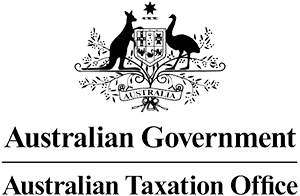Understanding Wills
A Will is a document outlining who you want to receive your property after your death. It must be ‘valid’ to be actionable; which means it must be correctly drawn up, signed and witnessed. A Will should also be very clear in its wording, and this is why we recommend having a specialist prepare this important document for you. Vague wording can create confusion and conflict between your beneficiaries, and nothing brings out the worst in people than a death and a vague Will. When accurately detailing what and who receives it, seriously consider mentioning specific ‘potential beneficiaries’ who are to be left nothing.
You may be aware that it is nearly impossible to make a Will completely airtight. But having an experienced professional prepare the documentation drastically reduces the possibilities of someone contesting your wishes.
Something that you may not be aware of is that a Will becomes invalid upon divorce or remarriage.
Did you also know many assets cannot be bequeathed to someone through a will? Examples are:
- physical property, bank accounts and investments that are owned jointly. Regardless of what is stated in the Will, when one party dies, the other owner automatically has ownership.
- superannuation funds. Again, regardless of what a Will says, the fund beneficiary is already allocated.
- assets that exist in trusts are governed by the terms of the Trust Deed.
- assets that exist within a business partnership.
- private company shares are also often governed by provisions that restrict ownership transferrance.
All this reinforces the fact that Wills are only part of the Estate Planning process.
Distribution of Estate
Speaking very generally, the law allows a wide range of people to claim on your estate. For example:
- Spouses
- Ex-spouses
- Biological children
- Adopted children
- People who have some degree of financial dependence on you
- People who can claim some sort of special or close relationship
When drafting a Will it is important to consider those who you think should receive some of your estate as well as those who should not. A tactic is to consider making a clear statement in your Will explaining why a person is to receive a certain bequest, or none at all. It will make the conditions of your Will obvious and hopefully avoid scenes like this…
Location: Supreme Court…
A distraught person, dabbing their red-rimmed eyes with a tissue, manages to get their words out, between gulps, sighs, sobs and emotion-packed silences.
“So-and-so swore it was me they really loved all this time, in spite of all their marriages along the way. They swore they would take care of me in their Will. But I am not even mentioned! Obviously, they just forgot or did not want to tell their current spouse!”
Dramatic pause coupled with silent weeping.
The claimant tells of a long term, loving relationship, a generous allowance for expenses, gifts, and extravagant holidays together… and they confidently expected to be kept in this manner for the rest of their life.
And there are no witnesses to contradict their claim.
The Court says: “Well, you are not mentioned in the Will but it seems you had a close and financially dependent relationship with the Deceased, so here is a big chunk of their estate.”
You will find more valuable information in Murray Davey’s “First you live…”.








